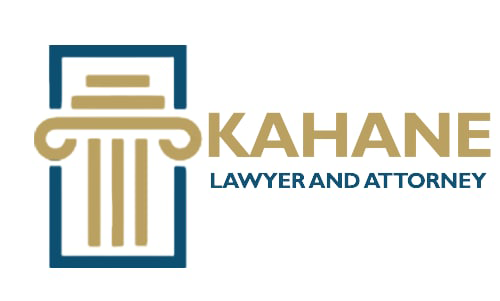
Not every business can afford to keep an in-house attorney on their payroll. By the same token, no business can afford to take chances with the law. There’s simply too much at stake. Here enters Kahane Law Group Our comprehensive general counsel services provide your company with full-time, Houston general counsel attorneys at a part-time cost. No matter the size or nature of your business, we can craft a custom ongoing legal plan for you.
A general counsel can help your business:
- Review and negotiate contracts
- Evaluate legal risks
- Monitor compliance
- Avoid legal entanglements
- Strategize and grow
Of course you need a securities law attorney should your company face litigation, but the real benefit of having a lawyer on staff is the day-to-day input they’re able to provide—the kind of input that helps avoid litigation in the first place. Furthermore, the familiarity that a general counsel has with the company makes it easier to prepare a case if the company does have to go to court.
Call our firm today at +1 (281) 941-7357 to discuss your needs. We are always ready to help your business.
Why Kahane Law Group?
When your company hires Kahane Law Group, you get “on call” priority access to a lawyer assigned to your company. Our fixed monthly fee also includes all the services that your company needs at no extra charge.
To see what an ongoing relationship with a Securities law attorney can do for your company, call us at +1 (281) 941-7357 to schedule a consultation.
Why Do Companies Hire General Counsel?
There are a variety of reasons why companies may be interested in seeking out legal counsel. Our team of savvy corporate attorneys is able to cater to corporations and business leaders seeking representation for a variety of reasons.
Common motivations for seeking general counsel tend to include:
- They have a steady amount of important legal and/or regulatory compliance work but no capacity for an in-house corporate law attorney.
- They operate in a highly regulated industry, such as finance, health care, or insurance.
- Their corporate strategy may require active readjustment. (acquisitions, joint ventures, etc.)
- They may need to raise capital through one or more securities offerings or other corporate financings.
- They realize that their legal status affects all aspects of their business and protects the longevity of their operation, so it makes sense to have the legal knowledge institutionalized within the company.
- Some major fallout or disaster may have befallen the company or industry, and they are interested in protecting themselves from future disasters or disturbances down the line.
- They are being encouraged by institutional investors to pursue legal counsel.
- Click here to learn about the alternatives for hiring a general counsel
Call Kahane Law Group at +1 (281) 941-7357 today if you are interested in pursuing the sort of outsourced general counsel service that allows your company to get the legal advice and services that it needs at a fraction of the cost of hiring an in-house lawyer or setting up a corporate legal department.
How Does Our Outsourced General Counsel Program Work?
Kahane Law Group offers an outsourced general counsel program for companies with frequent need for legal consultations. In this program, the company has unlimited consultations and unlimited legal work (litigation excluded) for a fixed fee per month.
Kahane Law Group’s outsourced general counsel program is perfect for:
- Well-funded start-up companies that need ongoing legal guidance to help grow their business and avoid legal problems (Link to Why Growing Companies Need General Counsel)
- Public companies that need to stay in compliance with SEC requirements (Link to Why Public Companies Need General Counsel)
- Mature companies that have a certain volume of legal and/or compliance work (Link to Why Middle Market Companies Need General Counsel)
With our outsourced general counsel program, Kahane Law Group serves as your company’s general counsel, helping you in every aspect of your business – reviewing, preparing and negotiating business agreements; advising you on securities offerings and corporate financing transactions; consulting with management on everyday legal and corporate issues; and handling legal compliance issues. Our goal is to handle every aspect of your company’s corporate legal needs.
In our outsourced general counsel program, you don’t have to worry about running up a big bill with your lawyer or the clock ticking when you need to contact your lawyer with a question. We know that businesspeople hate to pay fees to talk to their lawyer or have them review a document. That’s why our outsourced general counsel program offers a flat fee for unlimited consultations and unlimited legal work
Reduce Legal Risk and Provide Your Company with Peace of Mind
Imagine having the ongoing support and knowledge of an in-house lawyer that doesn’t require a salary, benefits, payroll tax, or office space, and has a broad spectrum of expertise. That’s what you get with Kahane Law Group’s outsourced general counsel program. We offer all of this at a fraction of the cost of hiring an in-house lawyer or setting up a corporate legal department.







